Food relief on the frontlines
As jobless claims have gone up, so has the dire need for putting food on the table. Food banks across the country have been met with overwhelming demand, and still are today.
By Andrea Snyder Wed, Aug 12, 2020
The world is facing an unprecedented global health crisis in the COVID-19 pandemic. What has ravaged innocent lives and wreaked havoc on our healthcare systems, has also had another path of destruction: the economy. In the U.S. alone, 30 million people are out of jobs and countless businesses – small and large – have closed or scaled down. “Unprecedented” is likely the most used term to explain the COVID-19 crisis, because that’s exactly what it feels like for many people in this country and around the globe.
As jobless claims have gone up, so has the dire need for putting food on the table. Unsurprisingly, food banks across the country have been met with overwhelming demand, and still are today. The New York Times reported that “millions of Americans are flooding this charitable system that was never intended to handle a nationwide crisis.” Food pantries that typically serve 100 people have seen as many as 900 people show up in one day.
The number of people facing acute food insecurity stands to rise to 265 million in 2020, up by 130 million from the 135 million in 2019, as a result of the economic impact of COVID-19. The economic fallout from the pandemic raises the risks of acute food insecurity felt across the world.
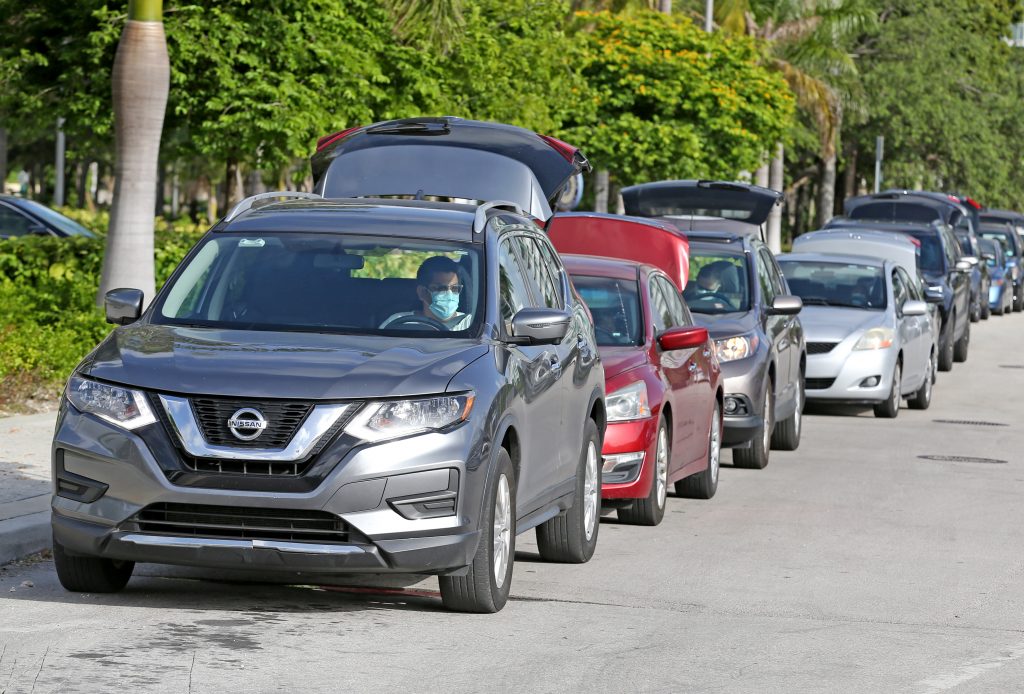
In Miami, Florida, where the pandemic rages on, a lifeline has come in the form of a statewide food relief organization, Farm Share. For more than 20 years, Farm Share has had a crucial role in assisting before, after, and for years following hurricanes, fires, tornadoes and other natural disasters, like the 2019 government shutdown.
“Prior to the COVID-19 pandemic, Miami-Dade County already had some of the highest food insecurity populations in the state of Florida. Overnight, hundreds of thousands of people lost their jobs and no longer had a steady income leading to an inability to put food on the table for their families,” said President & CEO of Farm Share Stephen Shelley.
As Miami continues to be a coronavirus hotspot, food security also continues to be a compounding crisis for the community. Farm Share said that elderly people, understood to be at greater risk of severe illness from COVID-19, are avoiding visiting grocery stores out of fear that they’ll be exposed to the virus, which has led to heightened food insecurity in the senior community. Not to mention the disruptions in the food supply chains and rising prices of particular goods. Even those with the means to purchase food have experienced lessened availability, and the problem has been worse for people who live in low-income and low-access areas, or ‘food deserts’.
Miami-Dade County is a strong example of resilience demonstrated through their preparedness in past crises. In 2016, the county was hit with the Zika virus and local leaders devised a plan for what to do in the event of another economic standstill. The Wynwood district chair recalls reaching out to businesses at the very start of the COVID-19 pandemic, before the lockdown, to advise business owners on shutdown procedures, relief funds, and other precautions.
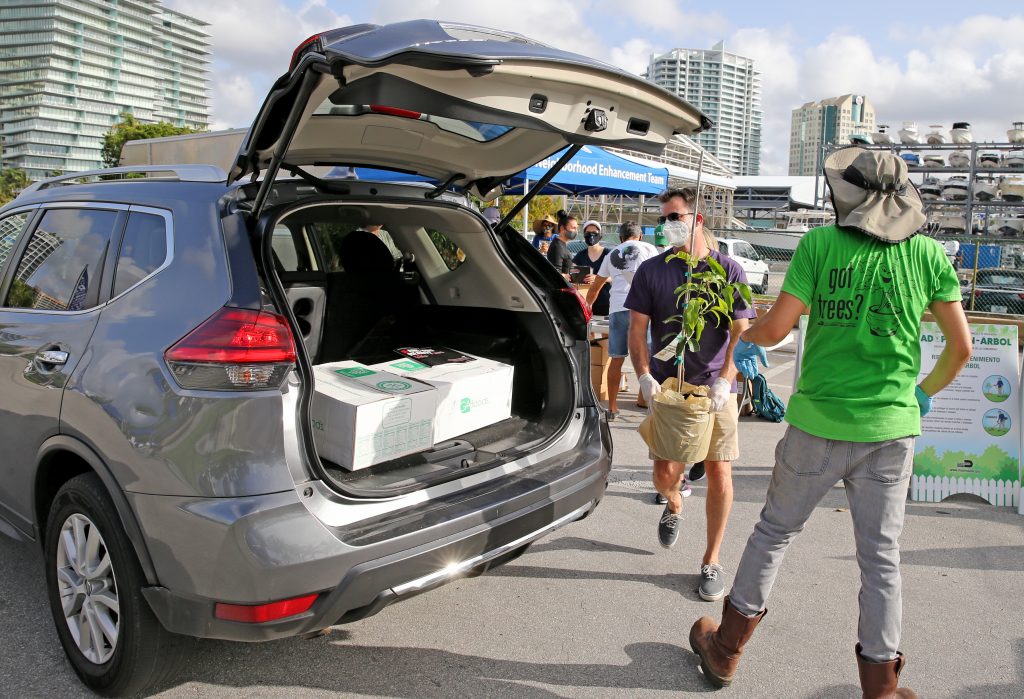
However, COVID-19 doesn’t easily compare to the other crises Miami has experienced. Shelley explained that, “although the COVID crisis is similar in many ways to other natural disasters in terms of general needs of the people affected, the nature of an infectious disease makes meeting these needs harder.” While the first 10-14 days of a natural disaster are typically the most critical for food distribution, with COVID-19 the duration of the crisis is unknown, depleting food and monetary resources that are needed to appropriately respond. Furthermore, since the pandemic is having a simultaneous impact on cities around the globe, it makes it even more challenging to obtain resources and assistance.
Farm Share saw demand for its services increase by more than 200% in a matter of days and it has continued to escalate for months later. Before the crisis, Farm Share was tackling food security in 64 counties throughout Florida by providing more than 88 million pounds of food annually, at no-cost, with the help of their volunteers. During COVID-19, Farm Share is responding to the pandemic by averaging more than 1 million pounds of food distributed to Miami-Dade County alone, every week.
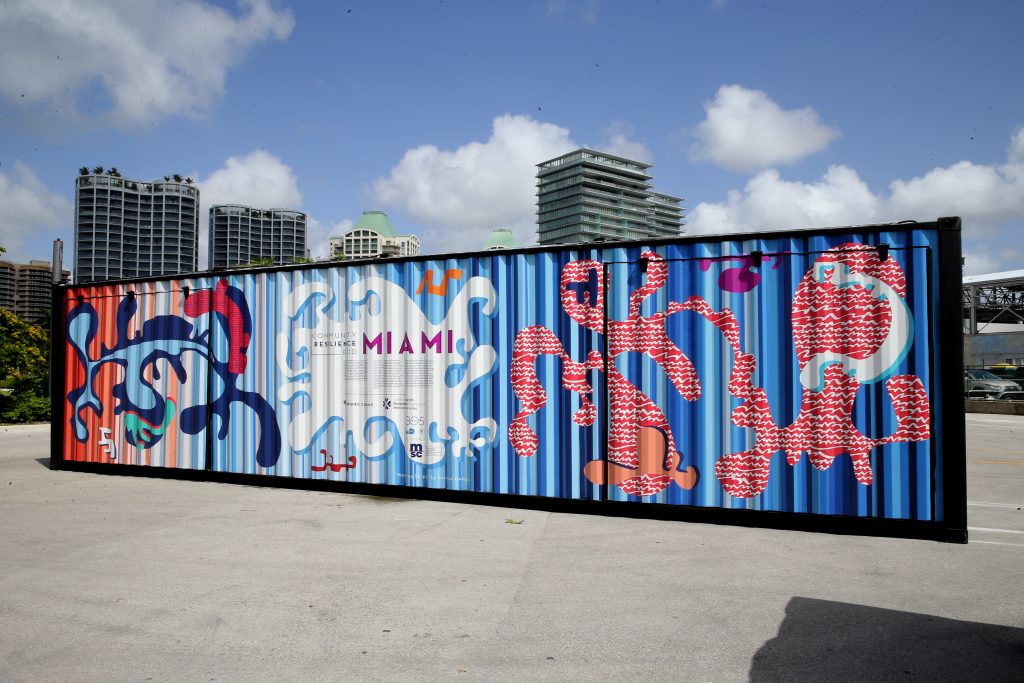
Alongside recent contact-less Farm Share food drives in Miami-Dade County is another community food relief asset, the Community Resilience Pod. This mobile community asset – designed to meet Miami residents in their neighborhoods to provide ready-to-use guidance and knowledge for challenges like sea-level-rise, extreme heat and public health, has been activated to meet people with the challenges they face today: food security.
“We’re having big issues here in Miami with food insecurity where people don’t have enough to eat, they’ve lost their jobs, and people from all walks of life, from the vulnerable to people who are doing quite well have been impacted by the crisis” said Director of Strategic Partnerships at the Adrienne Arsht – Rockefeller Foundation Resilience Center Rose Mann.
As Farm Share filled open car trunks with boxes of fresh farm foods, the Adrienne Arsht-Rockefeller Resilience Center team was providing fruit trees, hurricane preparedness kits and resources for increasing one’s food security while at home.
The Community Resilience Pod is helping build awareness of individual and community risks and enhancing emergency and disaster preparedness expertise for neighborhoods in Miami-Dade County and other locations where it is to be scaled. It also highlights local leaders and activists that are championing important community causes and pushing forward innovative solutions.
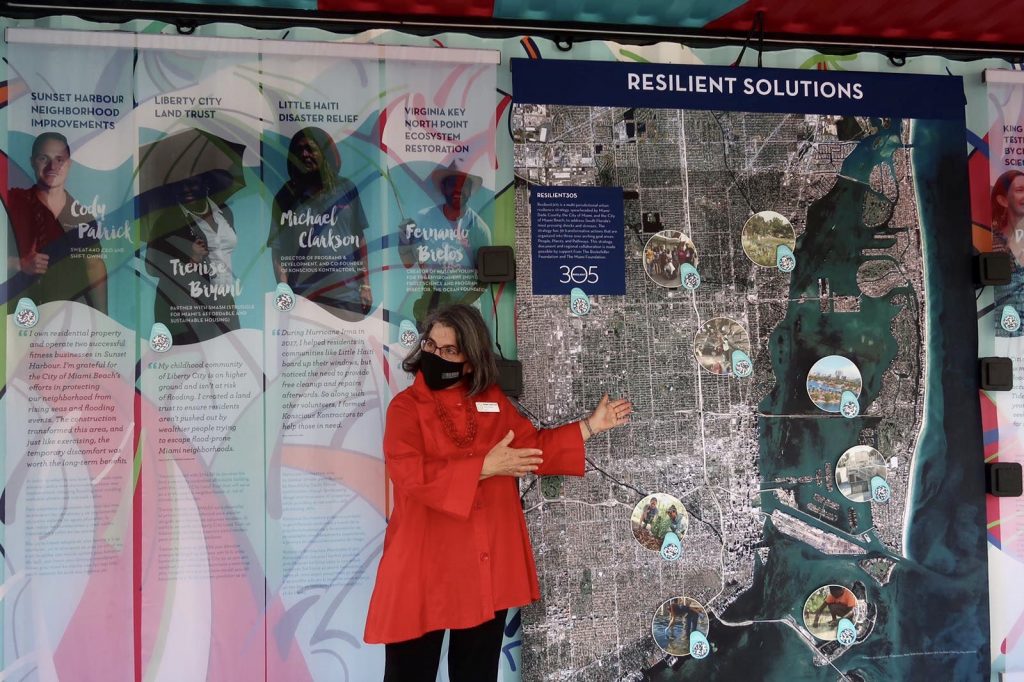
As a safe place to go in a time of crisis, the Pods can be quickly deployed to help communities not well-served by existing preparedness programs with food, aid, water, financial literacy, and mental health support during extreme weather events and public health emergencies. As Shelley of Farm Share puts it, “we’re positive that their contributions will help transform the lives of thousands of locals by providing access to resources and vital information that can aid in their daily lives.”
For this crisis, and future crises to come, the Community Resilience Pod is a beacon of action for Miami. It meets the needs of the current moment and makes residents more resilient to the crises of the future, providing ways to be prepared, get connected with your neighbors and take action.
Farm Share, a beacon of its own, is continuing to meet the demand in Miami, and in other Florida cities, by working with supply chains to secure and ensure food arrival, while expanding their distribution network and accommodating for the increasing demand they might experience over time.
They’re not alone, either. The local community has stepped up, like it does for countless other disasters, by meeting the needs of neighbors and neighborhoods brought on by the devastating impacts of the pandemic. Farm Share has received countless support from other food pantries, church groups, non-for-profit organizations and community leaders, to identify, coordinate, and distribute food to persons in need. Businesses have similarly joined in efforts to meet the collective challenges that the pandemic has pushed their way.
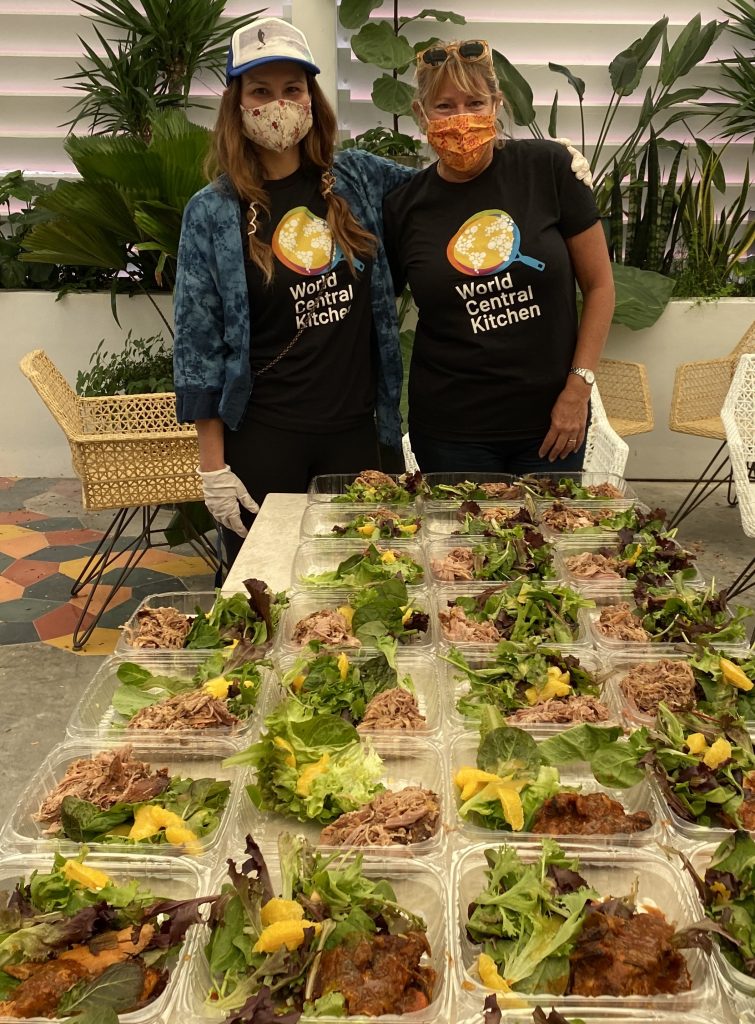
As this crisis persists, Farm Share will continue to distribute 1 million pounds of fresh food weekly, and the Community Resilience Pods will continue to meet communities in Miami where they are with the challenges they are facing. If past crises are any indication of what will happen on the other side of this, our bet is on the resilient communities weathering this storm.
Feeding America has a list of local food banks you can support, for those who are able. To support Farm Share, visit FarmShare.org or by texting “EAT” to 41-444.
This is a project from the Atlantic Council’s Adrienne Arsht-Rockefeller Foundation Resilience Center and the Digital Forensic Research Lab.
Share your #ResilienceStories and videos with us at resilience@atlanticcouncil.org and join us in sharing on social media: @atlanticcouncil, @ArshtRock, @DFRLab.